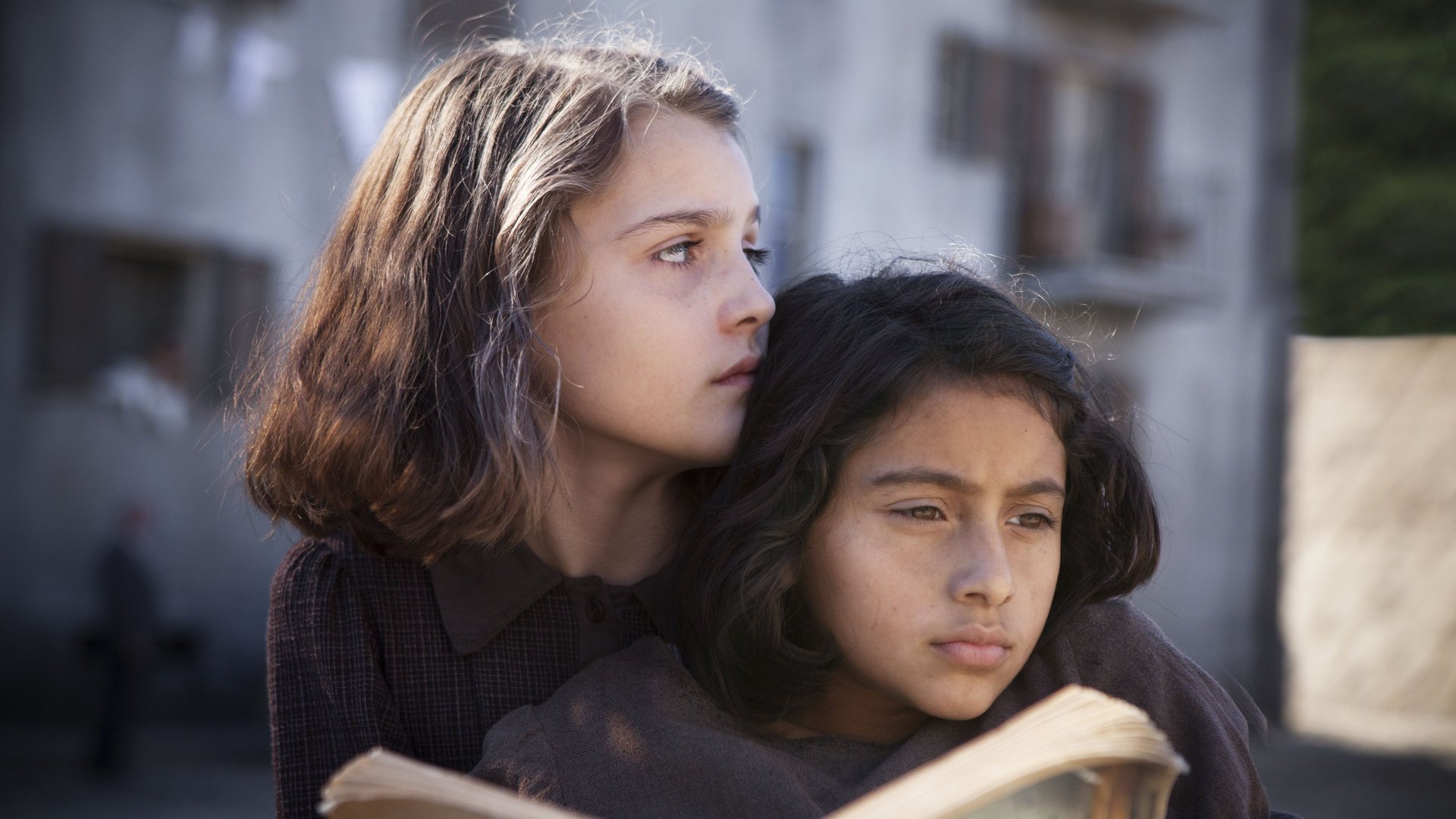HBO’s “My Brilliant Friend” captures the brutal magnificence of being a woman
This story contains spoilers to Elena Ferrante’s My Brilliant Friend and its HBO adaptation.


This story contains spoilers to Elena Ferrante’s My Brilliant Friend and its HBO adaptation.
What was terrible on the page is even more terrible on screen: The assault, the sudden slaps, the verbal blows, the black eyes. HBO’s new television adaptation of Elena Ferrante’s ferocious book My Brilliant Friend, which premieres on Nov. 18, is not easy to watch. But devoted fans of the blockbuster Neapolitan novels won’t be disappointed by the HBO series. It’s a dazzling, devastating portrait of young womanhood.
The eight-episode season is directed by Saverio Costanzo, with Ferrante as one of the writers. Told in a mix of dialect and Italian, and impeccably cast, it’s faithful to the first book in Ferrante’s four-part series. Episode one starts with an elder Elena getting a call on a smartphone from her friend Lila’s son, who says his mother has gone missing. The plot then jumps back in time to when the Elena and Lila are first-graders, played by Elisa del Genio (Elena, or Lenù) and Ludovica Nasti (Raffaella, or Lila).
As very young girls, they meet and compete in school, becoming fast friends as scandal after unexplained scandal unfolds in their post-war Neapolitan neighborhood. Lila and Lenù occupy a world that thrums with threats and limitations: parents who refuse to spend money on school, a neighborhood brute who steals their dolls. Tormentors and careless violence lurk in every alley. All the while, the girls’ mutual resentment and admiration for one another acts as a magnet between them, alternately pulling them together and forcing them apart.
Their paths as children diverge when Lenù’s parents agree to let her keep going to school, as Lila’s refuse. As Lenù’s world begins to open up, Lila is locked in the neighborhood by poverty and circumstance. By the third episode, the girls have become teenagers, played by Margherita Mazzucco (Lenù) and Gaia Girace (Lila). They’re learning to navigate a world that’s been transformed into a jungle of wooers and predators.
Our two heroes live on the edge, their lives decided by people who consider them burdensome property–their parents, their brothers, the men in their neighborhood. Over the course of the first six episodes made available for review, the series ably recreates the spellbinding tenseness of the book. Each scene is loaded with the feeling that some new menace is just one beat away. (I found myself hitting the space bar to pause the show on my computer just as often as I had to put down the book to catch a breath.)
In spite of everything, for better or worse, the women dazzle their peers and the viewer: Their hips, their eyes, their grammar skills, their ability to cry, to dance, to tell stories, to explain literature, to design shoes. The teenage boys around them are patriarchs-in-training, but the girls have power that has them mesmerized—and no one as much as Lila, who denounces the physicality of womanhood just one episode before she finds herself being happily twirled and dipped by every boy at a party.
And poor Lenù. Between the two, she’s the one who’s been given the chance to escape, through her education. But Lila’s orbit is too strong to wrench away from. Onscreen Lenù, for most of the season, is even more pathetic than in the books. Her predisposition to be a passive follower, grasping for approval from the emotionally distant Lila, is all the more palpable here. Readers who see themselves as a conscientious Lenù rather than a willful Lila may cringe at the onscreen rendering.
Some of the images work even better on the show than in the book: The chirping apartments, for example, stacked on top of each other as the debris of one woman’s madness falls literally onto the lives of everyone else. The show depicts the provincial claustrophobia of a neighborhood where, instead of a newspaper, there’s a rumor mill that runs from balcony to balcony. It’s a rare spot of humor.
One notable side effect of putting faces to so many names is that the boys and men of the neighborhood are made real, almost distractingly so. In the novels, they’re myriad and faceless, sometimes blending together in the shadow of the two blazing protagonists. On the show, they come in diversely horrible shades: doughy, handsome, leering, monologuing, assholic, brooding, fuckboyish. Teenage Rino, Lila’s proud and unpredictable older brother, played by Gennaro De Stefano, is a particular highlight, full of both love for his sister and loathing for his lot in life.
With their prolonged embraces and glances of jealousy-admiration, the relationship between Lenù and Lila reads just the tiniest bit queer on camera, which works as an added layer in their complex love for one another. (“I think friendship is very erotic, but it isn’t necessarily sexual,” as Susan Sontag once said.)
It’s not until the second half of the season that Lenù makes it out of the neighborhood, and eventually, to the seaside, where the grim and darkly lit streets finally give way to the shining sun. The viewer, like Lenù, is able to breathe at last. But even there, as she learns the power of being her own woman—far from her parents, her hair growing lighter, her body filling out, her book pile stacking up, her intellect growing—she also sees clearly the ominous curse that power carries with it. Her potent cocktail of emotions—pride, hope, lust, disgust, and fear—linger in the blood long after the screen goes cold.